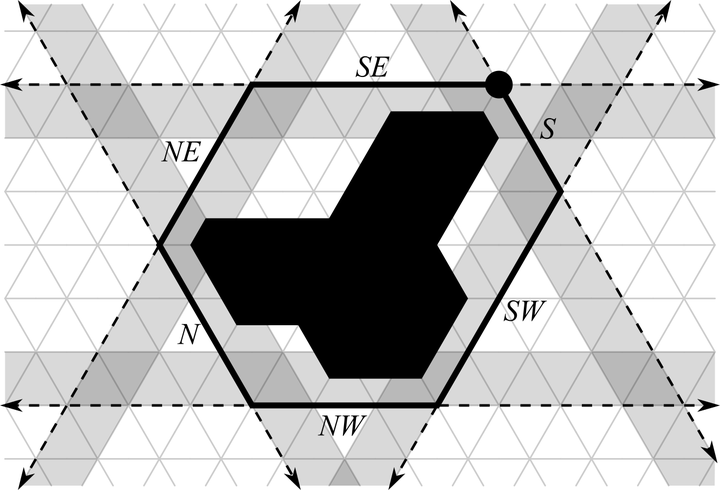
Abstract
We envision programmable matter as a system of nanoscale agents (called particles) with very limited computational capabilities that move and compute collectively to achieve a desired goal. Motivated by the problem of sealing an object using minimal resources, we show how a particle system can self-organize to form an object’s convex hull. We give a distributed, local algorithm for convex hull formation and prove that it runs in ${\cal O}(B)$ asynchronous rounds, where $B$ is the length of the object’s boundary. Within the same asymptotic runtime, this algorithm can be extended to also form the object’s (weak) O-hull, which uses the same number of particles but minimizes the area enclosed by the hull. Our algorithms are the first to compute convex hulls with distributed entities that have strictly local sensing, constant-size memory, and no shared sense of orientation or coordinates. Ours is also the first distributed approach to computing restricted-orientation convex hulls. This approach involves coordinating particles as distributed memory; thus, as a supporting but independent result, we present and analyze an algorithm for organizing particles with constant-size memory as distributed binary counters that efficiently support increments, decrements, and zero-tests — even as the particles move.